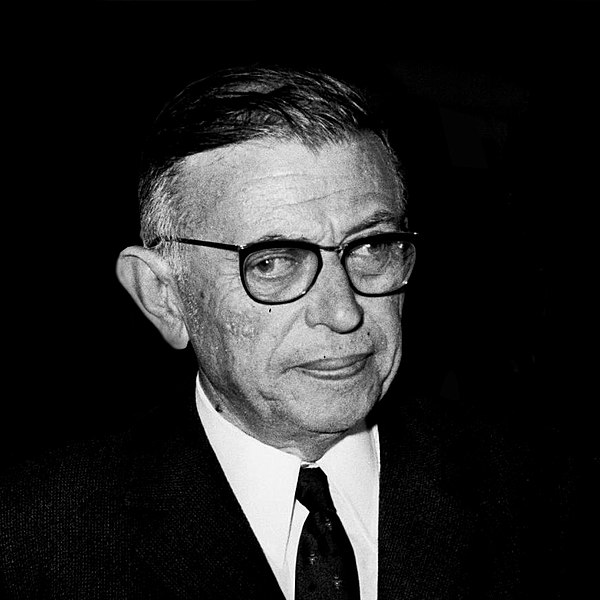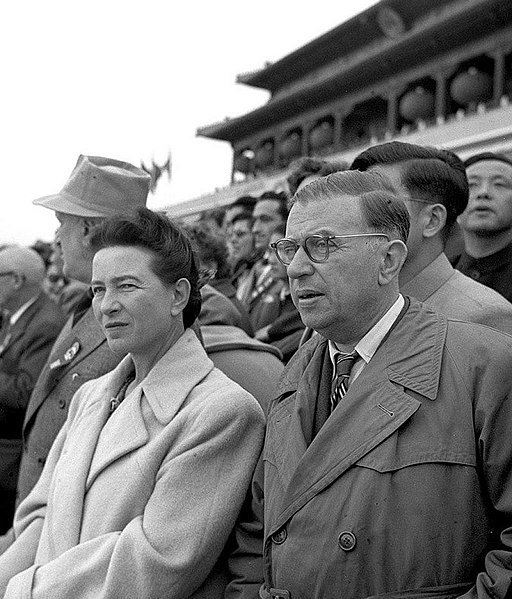The Roads to Freedom is a series of novels by French author Jean-Paul Sartre. Intended as a tetralogy, it was left incomplete, with only three complete volumes and part one of the fourth volume of the planned four volumes published in his lifetime and the unfinished second part of the fourth volume was edited and published a year after his death.
Sartre's Paris on the Eve of War – "Gaiety...Cafes". An engraving by Iain McNab. (Published in The New York Times in the book review of The Age of Reason, July 13, 1947)
Jean-Paul Charles Aymard Sartre was a French philosopher, playwright, novelist, screenwriter, political activist, biographer, and literary critic, considered a leading figure in 20th-century French philosophy and Marxism. Sartre was one of the key figures in the philosophy of existentialism. His work has influenced sociology, critical theory, post-colonial theory, and literary studies. He was awarded the 1964 Nobel Prize in Literature despite attempting to refuse it, saying that he always declined official honors and that "a writer should not allow himself to be turned into an institution."
Sartre in 1967
Simone de Beauvoir and Jean-Paul Sartre in Beijing, 1955
Sartre (third from left) and other French journalists visit General George C. Marshall in the Pentagon, 1945
Jean-Paul Sartre (middle) and Simone de Beauvoir (left) meeting with Che Guevara (right) in Cuba, 1960





